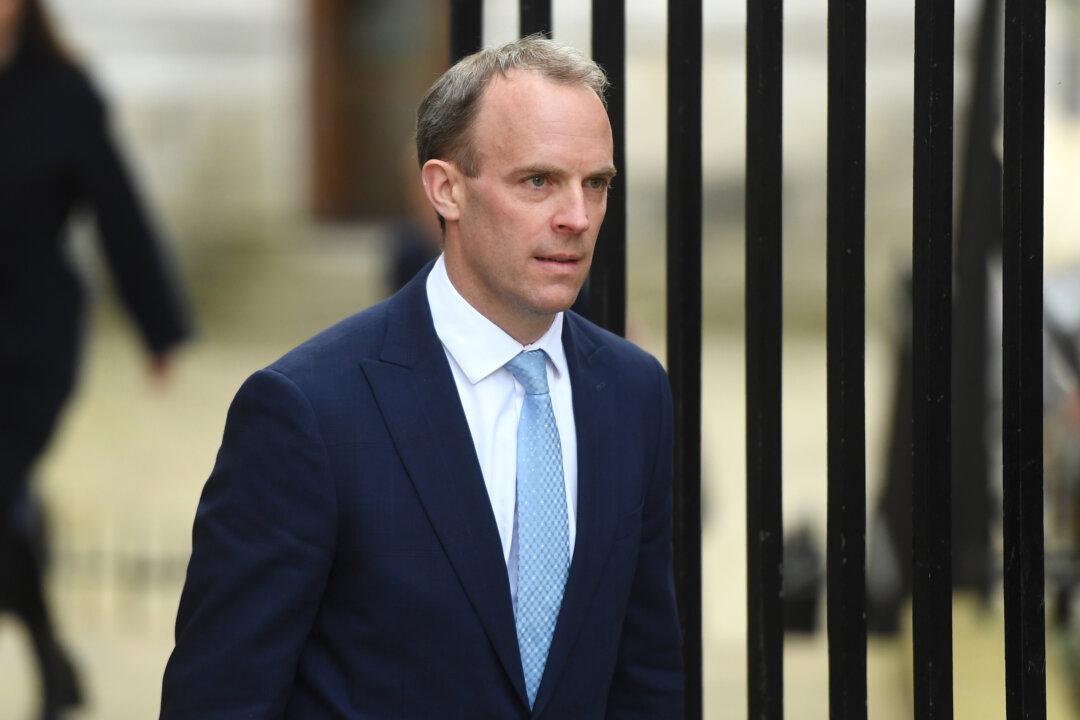The UK may begin easing existing CCP virus lockdown measures in March if the vaccine roll-out goes to plan, Foreign Secretary Dominic Raab said on Sunday.
Talking to the BBC’s “Andrew Marr Show,” Raab said the government plans to vaccinate 15 million—or 88 percent—of those most at risk of dying from the CCP virus by Feb. 15, followed by another 17 million in early spring, which will protect 99 percent of those most at risk.





